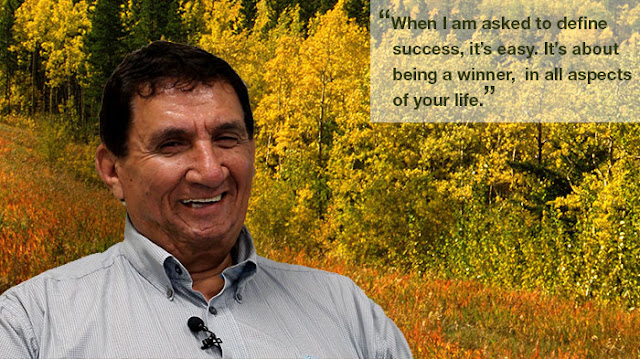The topic for this week’s article was easy to find in a tragic way as I got terrible news on Friday. My high school basketball coach passed away suddenly earlier in the week. His name was Allan Pard, to the native community he was known as Iron Shirt and was a respected elder of the Piikani Nation in Southern Alberta. In terms of impact and influence on my life I would say Allan was right up there with my parents.
Not only did he introduce me to basketball but most importantly he introduced me to myself. He showed me possibilities and believed in me when I was a lanky girl with sharp elbows from the middle of nowhere Alberta. He coached my basketball team when no one else wanted to. When we had to merge 3 small schools together just to have a team. Some coaches know all the tactics and plays but Allan coached with his heart and got things out of me that I didn’t even know were there better yet even considered possible. He encouraged me to be the best version of myself and I am so grateful to him for that every day. There isn’t a day that I walk into a gym where I don’t think about him and the impact he had on my life. Often wondering where I would have ended up if it weren’t for his belief in what I could do.
Allan was the cornerstone behind why I became a coach. He was an exceptional leader that really knew how to reach his players. He told me if we still lived on the plains and off the land there was no doubt in his mind that I would have been a warrior because of the strength and determination I had deep down in my soul. Women weren’t typically warriors but if that was the best way to help the tribe then they would be called upon to use their skills in that way. He saw past my gender and made it okay for me to be the most complete version of myself.
He made basketball fun, a safe place for me to come to when everything else in my life was going terribly wrong and most of all he taught me how to release my energy in a way that I had never experienced before. It was constructive, powerful and uplifting but never easy. He made me play through my tears on more than one occasion. Allan never made it easy for me which developed my leadership and mental toughness. Lessons I didn’t fully understand until years after the fact. I had to learn to “dig deep” which is something he said to me frequently back then. He was a huge part of making it as a walk on in both college and university.
Last weekend at the Super Clinic David Blatt said “You can do more with less as long as you do it right.” I experienced that lesson with Allan when he took our dwindling team with 6 players left to Zones and we beat our home town rivals with their full roster. The opposing coach was so impressed he bought us a six pack of pop to honour our amazing underdog victory. Allan was my favourite coach and I would have done anything for him.
Each time I walk into a gym memories of him find their way into my mind. I think of the many things he has taught me throughout my life. As a child he was forced into residential school and relied heavily on peace and positivity in his adult life dealing with those scars. Allan dealt so much with racism and fought back using basketball as a way to belong and to be accepted which is something that resonated with me. He held on to his culture tightly and because of our deep connection he brought me into it. In a lot of ways I felt like his daughter I got to be a part of many sacred native rituals with him and his family.
Today and always I honour the time I had with him and celebrate his life. I am glad circles don’t end because that means I never have to say goodbye. He is with me because he is a part of me with the lessons he has engrained within the fabric of my soul. I appreciate all that he has done for me and honour his legacy as I carry his message forward. What an outstanding coach, leader and human being! I am deeply blessed to have known him.
If you would like to more about Allan here is a video and article I was able to find.
